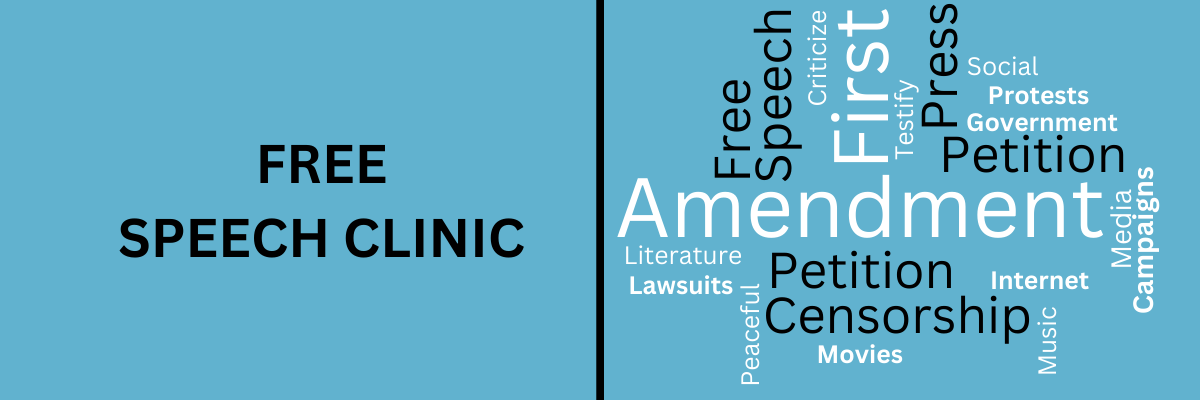The Free Speech Clinic was easily one of the best experiences I had in my early legal career. It prepared me for the challenging work I will face as an attorney, and let me go much deeper in analyzing legal issues that were only glossed over in class.
It all started with the guest speakers. Professor Koob did a remarkable job bringing in some of the finest first amendment practitioners in the country. We met diverse, brilliant folks like Nadine Strossen, former president of the ACLU, Ilya Shapiro of the Cato Institute, and the Honorable Michael McConnell, former 10th Circuit Judge, renowned First Amendment scholar, and current member of Facebook’s Oversight Board. These speakers could not have been more generous with their time and their advice on advancing our legal careers in the field of free speech law.
While I’m sure all free speech clinics give their students worthwhile experiences, I think the one at this school is particularly great. I gained a ton from the clinic, not just from what I learned in the class itself, but from the way it fit in with the law school’s broader educational support system. Scalia Law has an uncommonly strong set of professors who focus on individual liberty, spearheaded by our Liberty & Law Center. The lessons those professors taught me during class helped further my clinic work, and vice versa. I also took part in the school’s Supreme Court Clinic, and working in both sharpened my legal research and writing skills in ways that were invaluable.
Our school’s connection to Washington D.C. improved the clinic too. We were able to learn from practitioners who practiced in both state and federal government, where the pressing free speech issues that made national headlines were boiled down into lesson plans for us to study and debate.
Best of all, the classmates I had in the Free Speech Clinic will be friends and colleagues for years to come. For the students who were my age, we were able to talk shop about legal developments at the Supreme Court and the post-grade job hunt. For those classmates that were a year younger than us, we were able to provide advice on internships, professors, and extracurriculars.
I am incredibly grateful for my experience at the clinic. The thrill and problem-solving demands of real clients, along with the pressure of non-negotiable court deadlines, were all essential to my legal development. And advocating for an issue I care about deeply made all the hard work worth it. As I begin my job at the Department of Justice this fall, I know that the lessons I learned in the Free Speech Clinic will stay with me for years to come.
Alexis, Scalia Law ‘22
